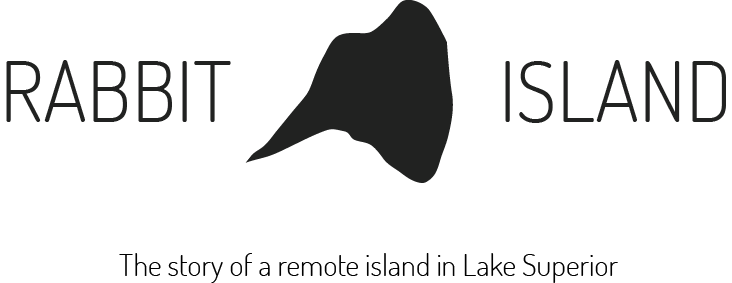This afternoon the roaming artist residency Cabin-Time is en-route to Rabbit Island. About an hour ago the six members of CT3 crossed the Mackinaw Bridge dividing the Upper and Lower Peninsulas of Michigan and will be camping on the Keweenaw mainland tonight. Tomorrow morning they will be met in Rabbit Bay by Andrew Ranville and taken to the island by fishing boat, weather permitting, to begin work.
We’re happy to have them on the island and are looking forward to observing the products of collaboration. It will be an interesting experiment. For the last several months Cabin-Time has been exploring ideas at the intersection of wilderness and art and as such fits nicely with several Rabbit Island premises: that creation and consumption are tied together, that artists offer and symbolize the fundamental creative intention, that wilderness is a neccessary part of a complete education, that the mandate of maintaining Rabbit Island’s environment while creating art (or anything else) represents an idea that can be applied figuratively to creation/consuption decisions of the wider society, and that the history of art might be valued in a new context if externalities of it’s creation and intention were given critical attention.
“Art is what you can get away with” is the quip Andy Warhol famously borrowed and exemplified. And while this idea is valid from market and populist perspectives it has far less luster when it is contextualized by the relationship of a work of art–or lack thereof–to an environment larger than the conceptual. Said another way, perhaps, when art moves beyond the context of the native environment it has potential to stray fundamentally from moral relevance. The same can be said for any act of creation/consumption and it could thus be argued that oversized balloon dogs, etc., would be more properly exhibited in aisles of a Walmart (alongside other creations that rarely connect to nature in a thougthful way) than halls of the MoMa. The idea of a creative intention judged in accordance with fundamental native responsibility turns the art world upside down.
“Art is what you can get away with” is the quip Andy Warhol famously borrowed and exemplified. And while this idea is valid from market and populist perspectives it has far less luster when it is contextualized by the relationship of a work of art–or lack thereof–to an environment larger than the conceptual. Said another way, perhaps, when art moves beyond the context of the native environment it has potential to stray fundamentally from moral relevance. The same can be said for any act of creation/consumption and it could thus be argued that oversized balloon dogs, etc., would be more properly exhibited in aisles of a Walmart (alongside other creations that rarely connect to nature in a thougthful way) than halls of the MoMa. The idea of a creative intention judged in accordance with fundamental native responsibility turns the art world upside down.
Art, however intoxicating, is uncivilized if it floats beyond criticism in a world removed from cause and effect on a basic level. There is a distinction to be made between cultivation that is tied to the native rules of the game and cultivation that is tied only to the canon of human creativity and political skill, the former proving much more profound in the long run. Restraint still matters.
Cabin-Time will be in residence on Rabbit Island until August 28th and will exhibit their work on Friday, September 21st at the Miscellany gallery space in Grand Rapids, MI, during ArtPrize. More info about the Cabin-Time exhibition can be found on Facebook by clicking here.
CT3:
+ Sarah Darnell
